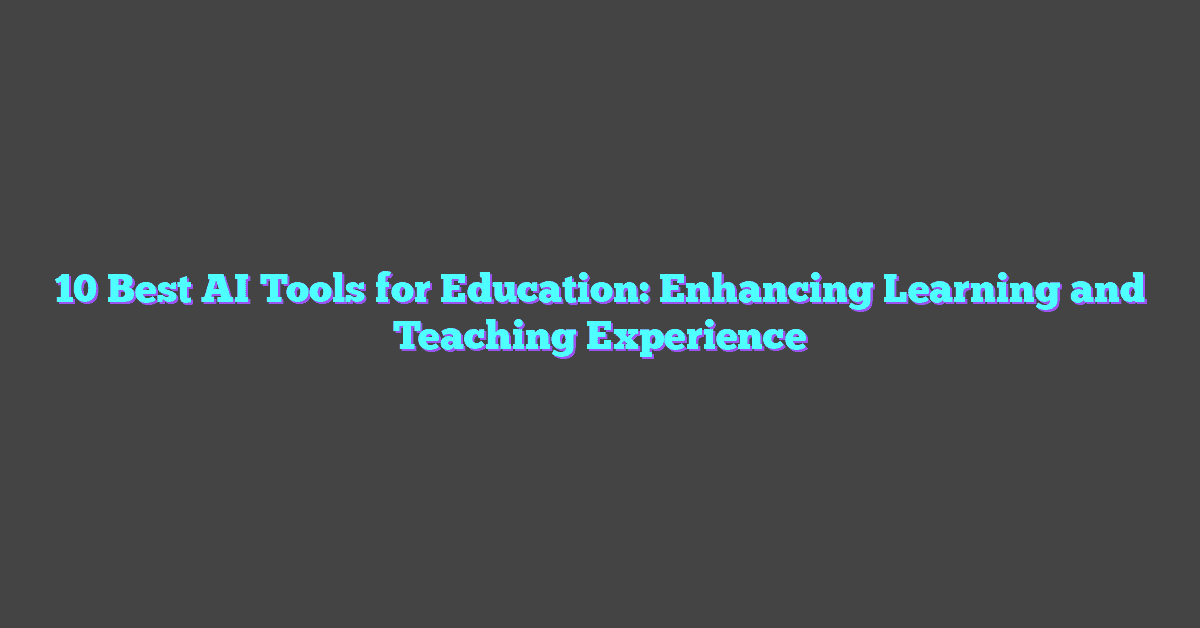Artificial Intelligence (AI) is no longer a futuristic concept; it’s transforming industries and everyday life right now. From self-driving cars to virtual assistants, AI’s impact is undeniable. But with so many AI technologies emerging, figuring out where to invest can feel overwhelming.
Whether you’re a tech enthusiast or a savvy investor, understanding which AI innovations hold the most promise is crucial. This article will guide you through the most promising AI sectors and help you make informed investment decisions. Get ready to explore the future of technology and discover where your money might find the best growth opportunities.
Understanding AI Investment Opportunities
Investing in AI is a strategic decision that can yield significant returns as the technology continues to grow and transform various industries. It’s vital to understand the opportunities available to make informed choices.

Why Invest in AI?
AI continues its exponential growth and offers numerous investment opportunities for both tech enthusiasts and investors. The technology is not only transforming industries like healthcare, finance, and transportation but also creating new markets and services. According to PwC, AI could contribute up to $15.7 trillion to the global economy by 2030. Such robust potential makes AI an appealing sector for investment.
- Machine Learning (ML)
Machine learning allows systems to learn and improve from data without explicit programming. It’s used in predictive analytics, autonomous vehicles, and recommendation systems. Major companies like Nvidia and Google are heavily invested in ML development. - Natural Language Processing (NLP)
NLP focuses on the interaction between computers and humans using natural language. It powers applications like chatbots, virtual assistants, and sentiment analysis tools. Investments in companies like OpenAI or IBM Watson within this space show promising returns. - Robotics
Robotics integrates AI to create machines that can perform complex tasks autonomously. Robotics applications range from manufacturing automation to surgery assistance. Boston Dynamics and iRobot are key players. - Computer Vision
Computer vision enables machines to interpret visual information from the world. It’s essential in facial recognition, medical imaging, and self-driving cars. Companies like Tesla and SenseTime focus on this technology. - Edge AI
Edge AI allows data processing directly on devices rather than cloud servers, reducing latency and increasing efficiency. It’s crucial in IoT (Internet of Things) applications and smart devices. Qualcomm and Intel are leading in edge AI.
Understanding these diverse AI technologies helps investors target sectors with the greatest growth potential and align their portfolios with future technological advancements.
Key Players in the AI Market
The AI market features a diverse array of established corporations and innovative startups driving progress. Investors can identify substantial opportunities by focusing on these key players.
Leading Companies and Startups
Google: Google leads in AI with its advancements in Machine Learning and Natural Language Processing. Its AI platform, TensorFlow, offers robust tools for developers.
IBM: Known for its Watson AI, IBM focuses on AI for business applications. Its AI solutions span healthcare, finance, and logistics.
Microsoft: Microsoft’s Azure AI provides a comprehensive suite of AI services and tools. It integrates AI seamlessly into cloud computing.
Amazon: Amazon Web Services (AWS) includes a variety of AI services, such as machine learning and predictive analytics. Alexa, its virtual assistant, showcases its capabilities.
NVIDIA: NVIDIA is synonymous with AI hardware. Its GPUs are essential for high-performance AI computing, making it a crucial player.
OpenAI: This startup has gained prominence with its language model, GPT-3. OpenAI focuses on advancing AI for safe and beneficial use.
DataRobot: DataRobot specializes in automated machine learning (AutoML). It empowers organizations to build and deploy predictive models efficiently.
Innovative AI Products and Services
TensorFlow: An open-source platform developed by Google, TensorFlow supports a range of AI applications, including deep learning and neural networks.
IBM Watson: IBM Watson uses AI to analyze and interpret complex data. It aids in decision-making processes across various industries.
Azure AI: Microsoft’s Azure AI offers pre-built models and customization options. Its applications include text analytics, computer vision, and conversational AI.
AWS AI Services: Amazon’s AI services include Amazon SageMaker for building ML models, Amazon Rekognition for image analysis, and Amazon Polly for converting text to speech.
NVIDIA AI Computing: NVIDIA’s AI computing ecosystems, such as CUDA and cuDNN, enable advanced research in deep learning and neural networks.
GPT-3: OpenAI’s GPT-3 excels in natural language generation. It supports chatbots, translation, and content creation.
AutoML Tools: Companies like Google and DataRobot lead in AutoML, allowing non-experts to develop sophisticated models without deep AI knowledge.
Investing in these companies and their innovative products can be a strategic move, given their leading roles in the dynamic AI landscape.
Investment Strategies for AI
Artificial Intelligence offers diverse investment opportunities, but selecting the right strategy is crucial for optimizing returns. Understanding the dynamics of long-term and short-term investments, as well as assessing risks, provides a solid foundation for AI investment decisions.
Long-term vs. Short-term Investments
Long-term investments in AI often target companies with established records of innovation and growth potential. Leading tech giants like Google, IBM, and NVIDIA consistently bring advanced AI solutions to the market. Investing in these companies taps into their sustainable growth, research advancements, and market dominance.
Short-term investments focus on emerging startups and technologies poised for rapid growth. Startups like OpenAI and DataRobot innovate at a fast pace, presenting opportunities for significant returns in shorter timeframes. However, short-term investments carry higher volatility due to the evolving nature of the technologies they develop.
Risk Assessment in AI Investments
Assessing risks in AI investments involves analyzing market trends, technological innovation rates, and regulatory landscapes. The AI sector, though promising, is susceptible to rapid changes and regulatory impacts that could affect market performance.
Market trends: Monitoring trends helps in understanding the potential for market acceptance and the scalability of AI solutions, which impacts investment decisions.
Technological innovation: Evaluating the pace of technological advancements and the ability of companies to stay ahead in the innovation curve is essential for minimizing risks.
Regulatory impacts: Considering the role of regulations, especially in areas like data privacy and ethical AI, is crucial. Regulatory changes can influence the applicability and reach of AI technologies, affecting investment feasibility.
Incorporating these strategies and assessments ensures informed decision-making in navigating the expansive and dynamic AI investment landscape.
Future Trends in AI
Artificial Intelligence (AI) is rapidly evolving, and understanding future trends can help investors make informed decisions. This section explores the growth predictions and emerging sectors in AI.
Predictions of AI Market Growth
The AI market is projected to grow significantly. According to Grand View Research, the global AI market size was valued at $62.35 billion in 2020, with an expected growth rate of 40.2% from 2021 to 2028. Key drivers include advancements in deep learning, increased AI adoption in various industries, and growing investments in AI startups.
Emerging Sectors in AI
Several sectors show promising growth due to AI advances.
- Healthcare: AI enhances diagnostic accuracy and personalized treatment plans. Companies like IBM Watson Health and NVIDIA are making strides in this area.
- Finance: AI improves fraud detection and algorithmic trading. Firms like JPMorgan Chase and Goldman Sachs leverage AI for financial analysis.
- Autonomous Vehicles: AI powers self-driving technologies. Companies like Tesla, Waymo, and Uber invest heavily in AI development for vehicles.
- Retail: AI optimizes inventory management and customer experience. Amazon and Alibaba are leading the way in AI-driven retail solutions.
- Cybersecurity: AI identifies threats and improves response times. Companies like Darktrace and CrowdStrike use AI to bolster security measures.
Investing in these sectors offers high growth potential as AI continues to evolve and integrate into various industries.
Conclusion
Investing in AI offers exciting opportunities across various sectors. From tech giants to innovative startups, there’s a wide range of options to consider. Whether you’re looking for long-term growth or short-term gains, understanding market trends and assessing risks is crucial. As AI continues to evolve, keeping an eye on emerging sectors like healthcare and autonomous vehicles can help you stay ahead. With the right strategy and informed decisions, AI investments can be a rewarding addition to any portfolio.
Frequently Asked Questions
What is the impact of AI on various industries?
AI is revolutionizing various sectors by enhancing efficiency, automating tasks, and offering innovative solutions. From healthcare to finance, AI is driving significant advancements and creating new investment opportunities.
What are the key areas within AI to invest in?
Key areas for AI investment include Machine Learning, Natural Language Processing, Robotics, Computer Vision, and Edge AI. Each area offers unique opportunities for growth and innovation.
Who are the major players in the AI market?
Major AI market players include established corporations like Google and IBM, as well as startups such as OpenAI and DataRobot. These companies are at the forefront of developing and implementing AI technologies.
What investment strategies are recommended for AI?
Investment strategies in AI should consider both long-term investments in tech giants and short-term investments in innovative startups. It’s crucial to assess individual goals and risk tolerance when choosing a strategy.
Why is risk assessment important in AI investments?
Risk assessment helps investors understand potential pitfalls and make informed decisions. Analyzing market trends, technological innovation rates, and regulatory impacts is essential for navigating the dynamic AI investment landscape.
What future trends in AI should investors watch?
Investors should watch for growth in sectors like healthcare, finance, autonomous vehicles, retail, and cybersecurity. These areas are expected to see significant advancements and high growth potential due to ongoing AI innovations.
How can investors stay informed about AI market trends?
Investors can stay informed by following industry news, attending AI conferences, and subscribing to market analysis reports. Staying updated on technological developments and regulatory changes is crucial for successful AI investments.




